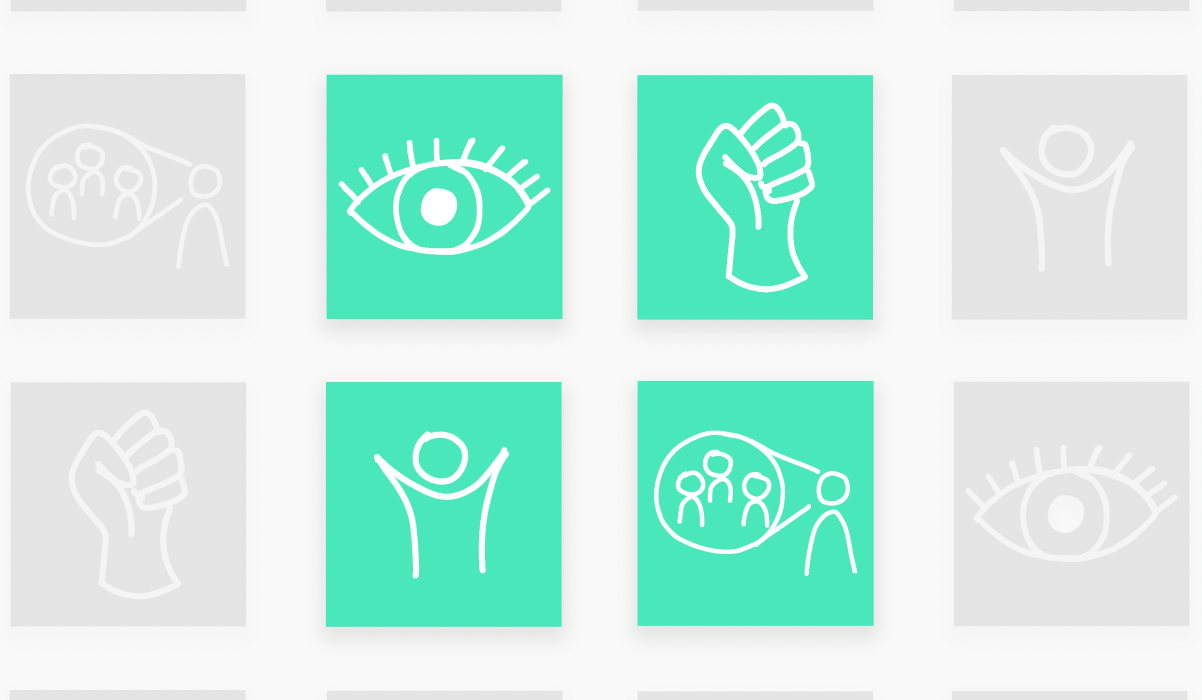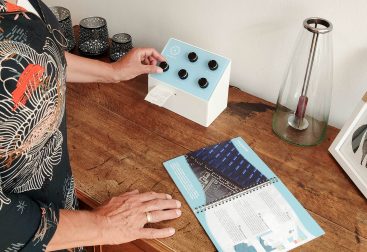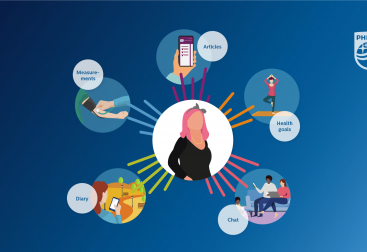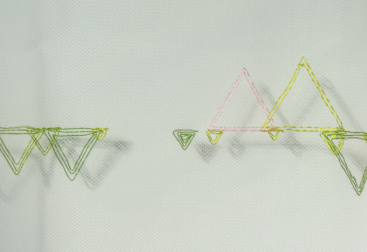As part of an explorative phase at the beginning of my PhD project, I experimented with pastiche scenarios. The first year of my PhD largely took place during the global pandemic, which is why I used the COVID-19 vaccination campaigns as the topic of interest for these pastiche scenarios. I used the characters from Margaret Atwood’s novels The Handmaid’s Tale (1985) and The Testaments (2019) as a starting point, and used them to define four narrative roles, as well as write narratives from these perspectives.
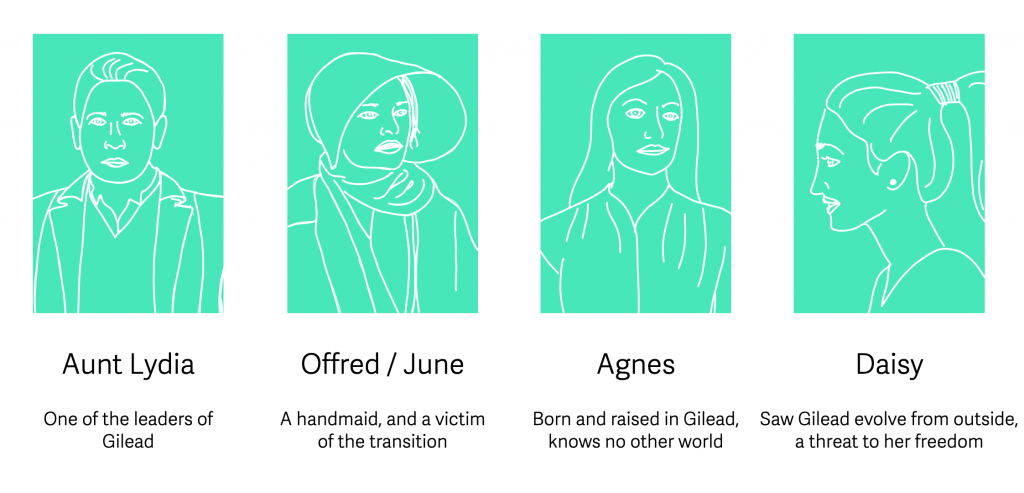
Minister Lydia Clements: Pastiche of The Testaments
Lydia,” the Prime Minister said, beaming from behindhis enormous desk. “Thank you for coming. You are well, I hope?” He did not hope that, but I let it pass. “I am,” I said. “And you? And your wife?” His wife had tested positive weeks ago and was still resting to get back to her old energy levels. He told me before that their marriage was going through a rough patch, and now he seemed rather relieved to be back behind his desk, a safe number of kilometers from his home situation. “Slowly improving,” he replied, before moving on to the order of business.
My visits to his office had become more frequent over the past months, as had our joint television appearances. I’d become swollen with power, to the people I became the face of the pandemic. The voice that told them how to live their mundane lives: whether they were allowed to see their family, whether they could go shopping, and whether they are finally allowed to take that well-deserved holiday abroad. To be clear: they are not allowed to do any of these things. My face, together with that of the Prime Minister, casts an unsettling shadow in all households around the country. My name has been used as an argument not to visit the in-laws for Christmas, as “Minister Clements simply won’t allow it”. When will I regain myself? Will I ever shrink back to my normal size, the size of an ordinary woman?
I had come to the office of the Prime Minister to discuss the press conference to be held two days later. The num-bers were not looking good, neither was the nationalspirit towards our government. Vaccinations would rollout soon and our message should be urgent, yet up-lifting. We decided we would announce a national curfew to urge our people to keep up the social distancing. To support the national vaccinations campaign, we would go live on television for our own shots on V-Day. By then, we had become the puppets of the nation. Our decisions based on how to control the virus with the least resistance from the people we were trying to protect.
Offred: Pastiche of The Handmaid’s Tale
We enter what is normally used as the gymnasium. The floor is of worn rubber, with stripes and circles painted on it, waiting to be used again. Soon.
There is anticipation in the room, and expectation, of something grand about to happen, although none of us knows exactly how anything will go from today onwards. For months, the yearning has felt useless, but finally there is a glimmer of hope. It is like the first day of school, or a new job. For the first time since March, it feels like there was something that we could do.We yearn for the future, hopeful, but some of us also scared. I hold the crumpled calling card in hand, slightly faded from my nervous, sweaty hands. Beneath the card, the accompanying pamphlet and my passport. Guards are around, to make sure that we keep our distance. Especially on the brink of better times, they are extremely cautious. I try to pinpoint what makes them appear so intimidating and decide that their uniforms, in combination with their masks are especially unwelcoming. I want to see their noses, their mouths. To know that they were human. The crowd moves forward. Another shot allotted.
A kick. My hand instinctively reaches for my belly. If it wasn’t for her, I would not be this worried. She must feel my nerves. I flick through the flyer once more. Vaccination is voluntary. The words mock me, suggesting a freedom I do not have. Not if I want to keep my job. Not if I want a safe world for my child. The news channels were clear about it: no immediate risks for pregnancy were expected. Then again, the vaccine was not tested on any pregnant women. Are there other women here with the same thoughts going through their minds, I wonder? Did I make the right choice?
Agnes: Pastiche of The Testaments
Paula turned off the television and around the room we each looked at one another. I noticed that everyone was smiling, hopeful and looking forward to change. They had watched the vaccination of Minister Clements in awe and were ready to do the same, although it would not be anytime soon. I realized that I did not share their excitement.
Over the past months, it was clear that vaccines were rapidly being produced and that they would be the way back to the old normal. From the onset of the ’good news’, I had been hesitant. Of course, like everyone else, I was hoping that there would finally come an end to the distancing, the agony of those that had fallen ill or died and their families and friends, the increasing conflicts between people as they lost their grip on it all. However, while I was watching the news, a different feeling overwhelmed me. I was shocked to find that it was a feeling of resentment, resentment of an influential period that was about to end.
Ever since the virus erupted, there had been the collective feeling that we had lost everything that made us unique and that we were stripped of everything that made us human. Socializing. Partying. Discovering the world. But not for me. For me it had been a welcome period of calmness and predictability. Sure, like everyone else I had been forced to flip my life around in a matter of days, but it had offered an opportunity to change things, to create new habits and to quit those things that I had wanted to quit for ages. I had finally gotten around to reading the books that had been on the shelves for years, and I lost touch with a few friends at the edge of my circle that had cost me more energy than they had given for a while already. Instead I spent that time with my family, whom I loved so dearly and had gotten to see so little of as I was travelling back and forth between my job abroad and my home town.
So, as I sat there, watching the television with my family, I could not find the strength to smile back at them. For me, the vaccinations were not a promise of everything getting better. They acutely marked the end of the future that could have been – the calm, considerate and reflective future that we might have achieved if a cure had not been found so quickly.
Daisy: Pastiche of The Testaments
I’d basically observed the whole campaign from a distance. People around me were discussing it and forming opinions about whether it was safe and who should get it first. None of us thought that we were on the list to receive a vaccine soon. None of us thought that we were the priority. Not until they announced on live television that we were the risk, and we were the ones causing the biggest spread. Our government had decided to start with the people that formed the biggest risk to the general population. Teenagers were spreading the virus the most by then, so they would get their vaccines first. Our neighbors in Gilead had decided to start with the vulnerable part of the population first, the sick, the old and those who were exposed to the virus through work.
I had not seen my friends for months by the time they announced that vaccination would soon start. We were ecstatic that we would soon live in freedom again. “Protect the great minds of tomorrow!” the billboards by the highway told us. There was a large mental health campaign too, telling the rest of the country that we were suffering emotionally and that our generation would be lost if nothing was done about us soon.
When we went outside then, the friendliness decreased: there were angry looks from those lower on the waiting list, and I had the feeling that the protection of our so-called ‘great minds’ was leaking popularity. No one spat at us, but they scowled as if they would like to. We felt blamed, but who were we to complain?
Additional reading
Noortman, R. 2021. What would Margaret Atwood Do? Designing for Ustopia in HCI. Academic Mindtrek ’21, 1-2 June 2021. Tampere, Finland. Proceedings to be published, for a author copy, please reach out!
Noortman, R. 2021. Data-Enabled Futuring: Designing for and with the Invisible. In Companion Proceeding for the 2021 Conference on Designing Interactive Systems (DIS ’21).
